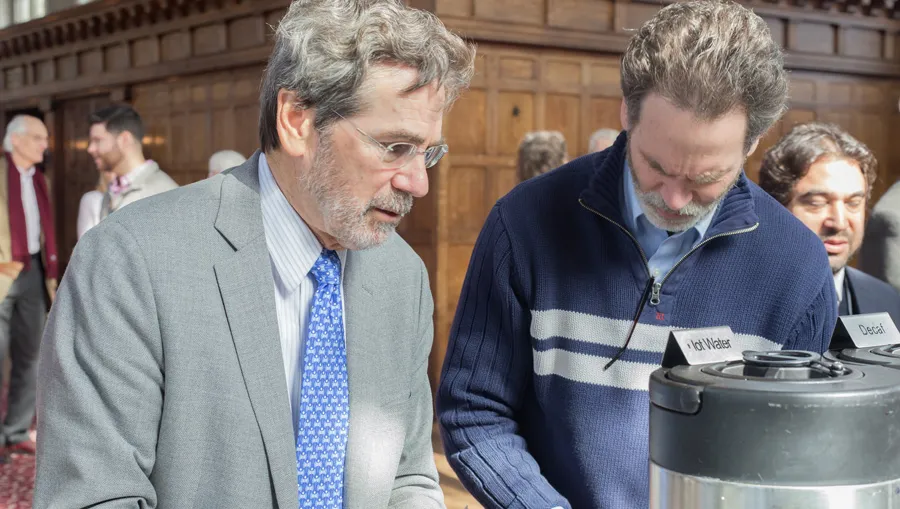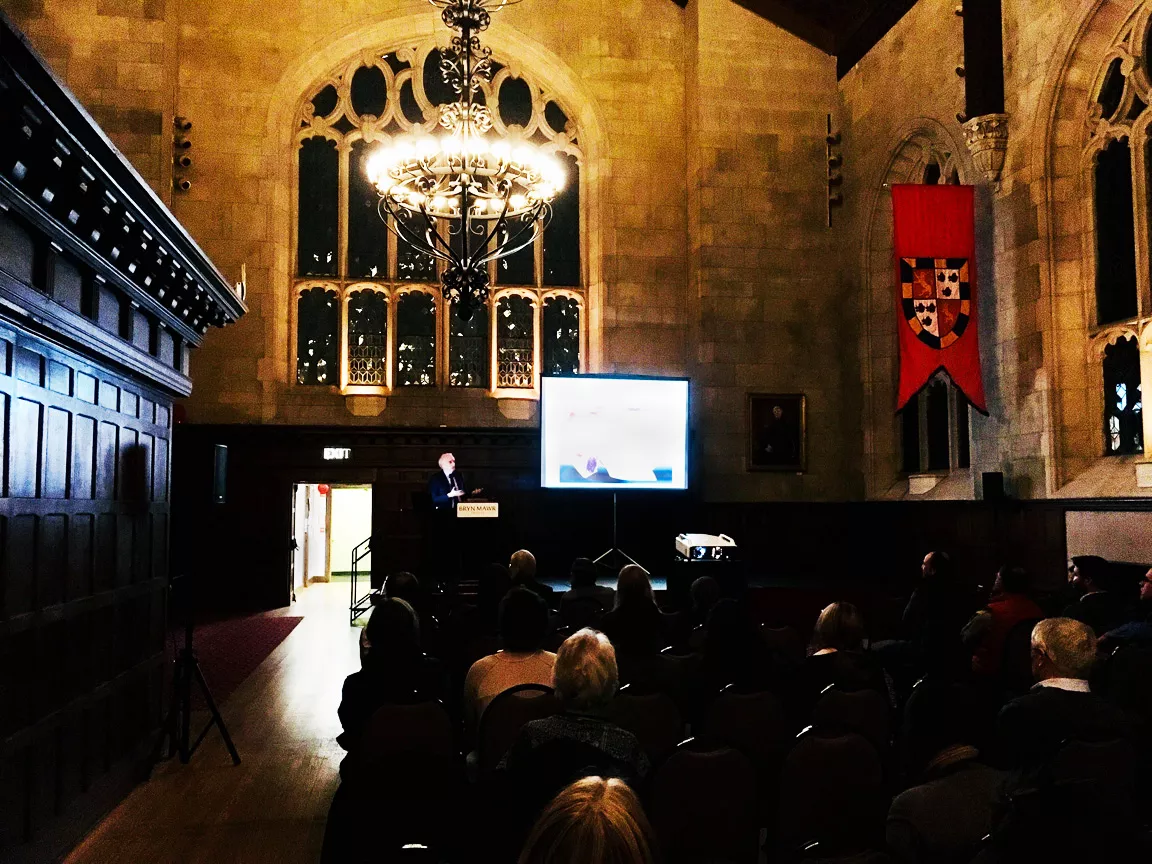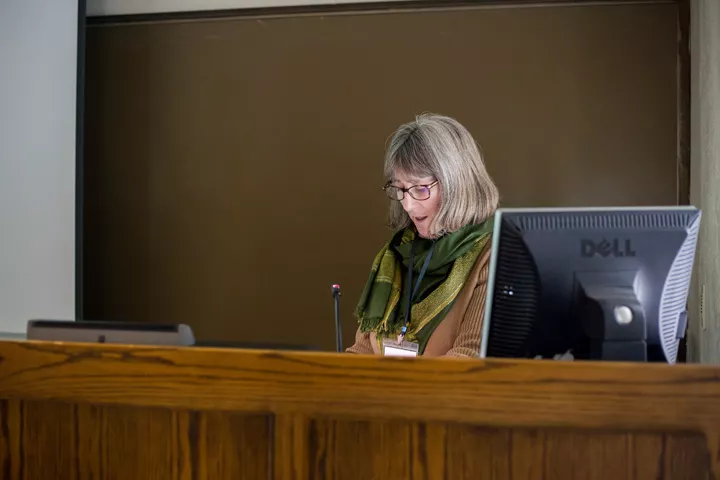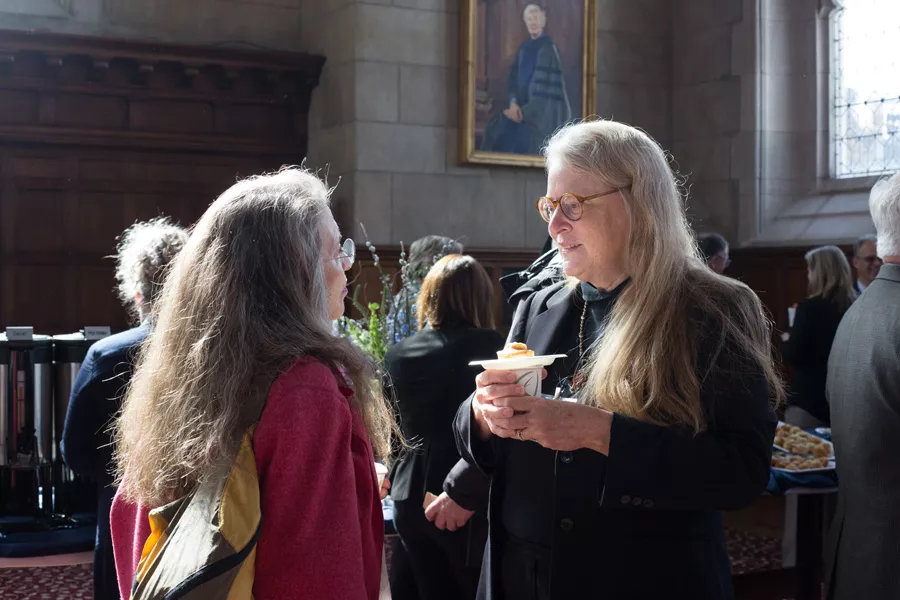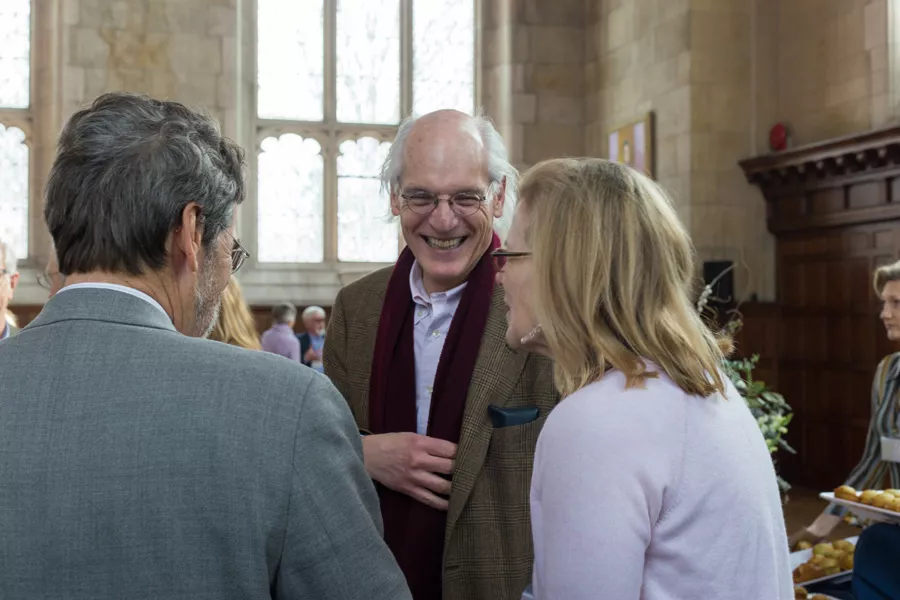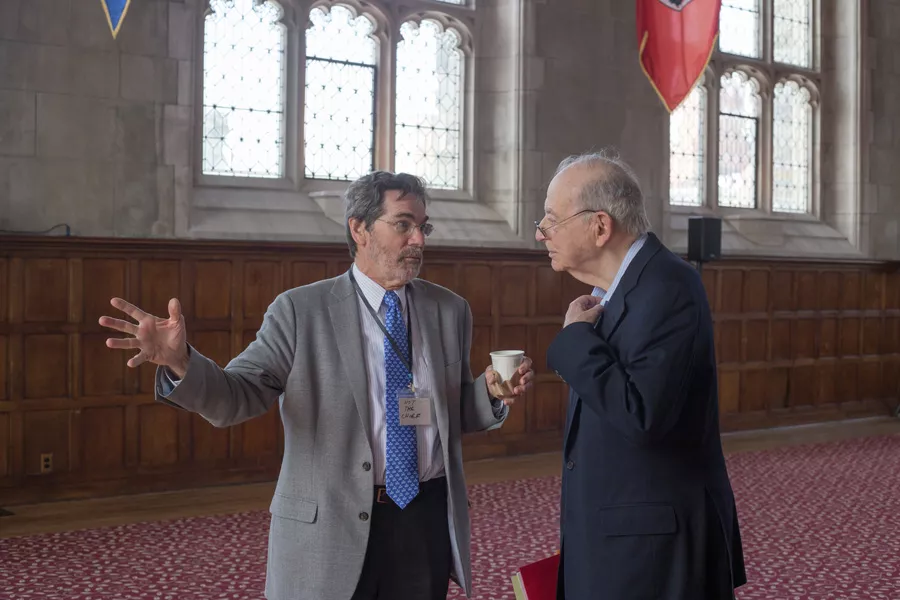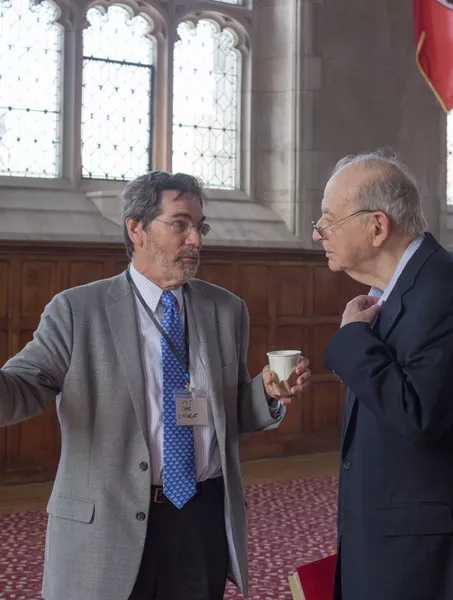
Friends, family, colleagues, and former and current students traveled from far and wide on March 2-3, to gather in Bryn Mawr College’s Great Hall in celebration of the distinguished career of Professor James C. Wright. Professor Wright, alongside his wife Dr. Mary K. Dabney, has been the backbone of the Department of Classical and Near Eastern Archaeology at Bryn Mawr College for forty years. This two-day symposium titled “Power & Place: Prehistoric Aegean and Beyond” showcased the breadth and diversity of Professor Wright’s research and intellectual pursuits and its impact on a generation of students and colleagues and on the discipline of archaeology.
The shadow of a shock winter blast did not hamper the cheerful atmosphere on Friday night. The keynote address by Joseph Maran, Professor of Pre- and Proto-history at Heidelberg University and Director of the German Archaeological Institute at Tiryns, was delivered amidst the dimly lit ambience of College Great Hall accented by strikes of rare winter lightning. Professor Maran’s talk “Deceptive Permanence: Architecture, Agency, and Transformations in Mycenaean Greece” investigated the impermanence of social meaning and practice in the long-term use of architectural spaces at Tiryns and Pylos during the Aegean Bronze Age. It highlighted the impact of Professor Wright’s scholarship in the field at both theoretical and technical levels and kicked off a symposium that celebrated the collaborative and generative nature of Jim Wright’s career at Bryn Mawr and beyond.
Having received a BA in Philosophy from Haverford College, Professor Wright pursued graduate studies in the Classical and Near Eastern Archaeology Department where he received his Ph.D. in 1978. Professor Wright served as a Professor of Archaeology at Bryn Mawr College since 1978 and was Department Chair from 2002-2012. From 1995-2000 he acted as Dean of the Graduate School of Arts and Sciences. Most recently, Professor Wright was the Director of the American School of Classical Studies at Athens from 2012 to 2017 before retiring.
The success of a career as dynamic as Professor Wright’s is reflected in his extensive publications and professional appointments which serves as a measure for his lasting influence on the study of Aegean Prehistory. Professor Wright’s major contribution to the field is in his strong engagement with social theory and philosophy, a fitting evolution from his days as an undergraduate philosophy major. While this symposium celebrated his academic accomplishments, it was his superb mentorship for several generations of Bryn Mawr scholars where his impact was most felt. Professor Wright has left a substantial impact on archaeological practice by training his students to consider the material record in ways that foreshadowed the “post-processual” turn in archaeological reasoning.
This influence was evident from the twenty talks by former students and colleagues given in his honor. Through his students, Professor Wright’s ideas on the social praxis of space, human agency and architecture, and a willingness to engage with the theoretical underpinnings of the discipline have been evaluated, adopted, elaborated, and applied across the ancient world. His influence amounts to no less than a newly established tradition, anchored by the Bryn Mawr College community he has nourished for forty years.
On Saturday, March 3rd, the symposium was held in College Hall 110, the very auditorium in which several decades ago Professor Wright held a conference that spurred a methodological shift in Mycenaean studies from an indebtedness to Homeric epic to an emphasis on micro-regional differentiation across the Aegean. The Saturday symposium included academically rigorous yet jovial and emotive talks. Former students and colleagues gave talks emphasizing the impact that Jim’s advisement, comradery, and personal investment had in shaping their own careers and character. In a particularly touching moment, Malcolm H. Wiener - noted philanthropist, founder of the Institute for Aegean Prehistory, and longtime member and chair of the American School at Athens - received a round of applause when he emphatically declared that Professor Wright was the best director of the American School he had seen during his tenure as chairman. Yet it was Dr. Bob Sutton, Professor Wright’s long-time Haverford College friend, president of the Philadelphia chapter of the Archaeological Institute of America, and no stranger to the Bryn Mawr community, who was bold enough to drag out the obligatory old photos in a classic attempt at jocular embarrassment.
It was fitting that the evening drew to a close with speech from Professor Wright and Dr. Dabney’s son Nico. In his remarks, the crowd was presented with a more personal side of the archaeological community that is often overlooked – when the children of archaeologist parents are raised on excavations in far-flung places, forging global perspectives within in a vibrant community of learned role models. Nico’s appreciation for the nurturing aspects of his parents served as a perfect metaphor for the experiences of each of his students, whose own identities were in part shaped by the dynamism and care of such positive mentors as James Wright and Mary Dabney. Indeed, Nico credits his parents as having a direct impact on his decision to work as an architect.
It is with this note that the Graduate School of Arts and Sciences warmly thanks Professor Wright for his dedication to the Bryn Mawr College community. We are forever indebted to his service to the graduate school. We congratulate him on his retirement and wish him the best of luck in his future years as emeritus professor.
The event was organized by former students Susan E. Allen, Mireille M. Lee, R. Angus Smith, and Robert Schon with the support of the Bryn Mawr College Department of Classical and Near Eastern Archaeology, the Institute for Aegean Prehistory (INSTAP), and The Philadelphia Society of the Archaeological Institute of America. The Graduate School of Arts and Sciences thanks each of these individuals and organizations for organizing this successful and thought-provoking event.
